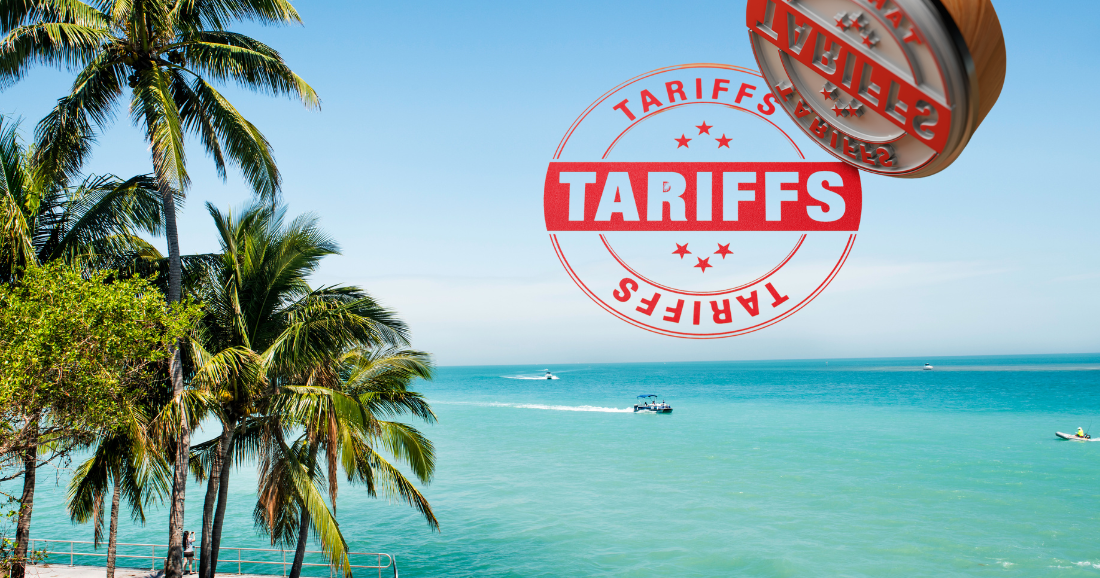Some clouds. Low 79F. Winds SE at 5 to 10 mph..
Some clouds. Low 79F. Winds SE at 5 to 10 mph.
Updated: June 6, 2025 @ 4:29 pm
An oceanfront view of part of the Florida Keys with a “Tariffs” stamp overlayed on top.
An oceanfront view of part of the Florida Keys with a “Tariffs” stamp overlayed on top.
With rising tariffs, visa delays, and changing global tourism patterns, Florida and other U.S. states are facing a serious decline in visitors.
According to the U.S. Travel Association, international visits to the U.S. declined by 14% this March. But the hit was even harder with Canadian tourists, as there was a 20.2% decline in visits from our next-country neighbors.
The pattern isn’t only because of general travel trends, though. The decline can also be attributed to the political climate between Canada and the States. Canada’s former prime minister advised citizens to avoid non-essential travel to the U.S. after the installation of new tariffs on Canadian exports.
States like Montana, California, Washington, Colorado, New Hampshire, and Nevada are already feeling the blow. Maine is the newest addition to the list of affected areas, especially considering how much their quaint small towns contribute to their income.
Each state is seeing a decline in their tourist-driven industries–Washington state is seeing a decline in Seattle’s museums, festivals, and waterfront attractions; Colorado’s taking a hit to their ski bookings.
Though Florida’s numbers have been decreasing for a while post-pandemic, there are less long-term snowbirds as well as a decline in international visitors overall.
The World Travel & Journalism Council predicts there will be hard hits to the economy from these trends. They estimate the U.S. will lose over $12 billion in international travel spending this year alone, and a dip in Canadian tourism alone could leave the U.S. with billions of dollars–and jobs–in decline.
As the U.S. takes hits to their tourism industries, Canada and the European Union are taking steps to encourage new visitors. The EU is taking an almost-opposite approach to the United States, allowing Visa-free access for Asian and South American visitors.
The message is loud and clear: openness attracts; exclusion repels.
Your browser is out of date and potentially vulnerable to security risks.
We recommend switching to one of the following browsers:




